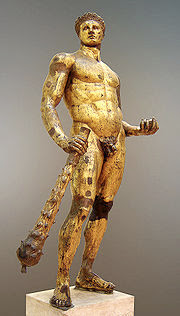
- But, judging from the wind, it looked to me that when he see the ghost in the queen's apartment, he might have made more of his stockings." (p.257)
Charles Dickens alludes to
Hamlet, a play written by Shakespeare, throughout Chapter 31. In Shakespeare's play, Hamlet portrays himself as insane, ultimately to reveal the cause of his father's death and his uncle's rise to power. Hamlet shows disgust towards his mother and her decision to so quickly marry his uncle. Hamlet desires to ruin the King's power and to make the truth known. Dickens alludes to
Hamlet in
Great Expectations because many of the main ideas draw parallel connections with each other. Like Hamlet, everything Pip is doing will lead to his eventual downfall. Hamlet desires to marry the beautiful Ophelia -- except other characters hinder that wish -- where Pip is madly in love with Estella, despite the fact that she cannot accept his affection. Overall,
Great Expectations and
Hamlet possess similar themes: trust, love, deception, status/power, etc.
Work Cited:
"Hamlet: Plot Overview." Sparknotes. Web. 3 Jan. 2010. http://www.sparknotes.com/shakespeare/hamlet/summary.html.
Photo Credit:
Photograph. Concentric.net. Web. 3 Jan. 2010. http://www.concentric.net/~marlowe/olivier_hamlet3.jpg.









